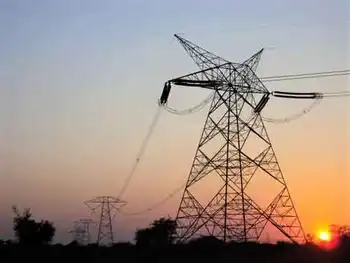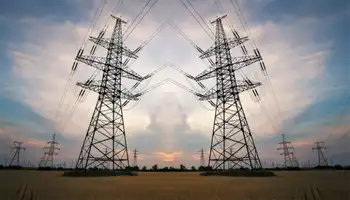Tax relief for seniors on power bills
By Globe and Mail
Arc Flash Training CSA Z462 - Electrical Safety Essentials
Our customized live online or in‑person group training can be delivered to your staff at your location.

- Live Online
- 6 hours Instructor-led
- Group Training Available
Premier Dalton McGuinty made the announcement at Kensington Gardens, a long-term care home in Toronto, according to government sources. Finance Minister Dwight Duncan also unveiled legislation for the tax credit.
The government is grappling with the soaring cost of hydro amid worries that it will become an issue in next year's provincial election. Both opposition parties are using the daily Question Period to attack the governing Liberals' stewardship of the province's electricity system.
"We are providing enhanced relief for Ontario seniors for their property and energy costs," a government source said.
Sources in the energy sector said the government has looked at various options. They said it is much easier for the government to help seniors with their hydro bills by introducing legislation than by changing the rate structure for consumers.
The government plans to amend existing legislation known as the Ontario Energy and Property Tax Credit. The legislation was introduced in this year's budget and currently provides energy and property tax relief to low- and middle-income residents of the province.
Energy Minister Brad Duguid declined to comment on whether the government has any plans in store for seniors. But he acknowledged that electricity costs are taking a toll on many families in the province.
"We understand that Ontario families have had to cope with a lot in recent months," he told reporters. "Energy rates are going up."
Opposition parties say the Green Energy Act, along with the harmonized sales tax that took effect on July 1, adding 8 per cent to hydro bills, and higher prices for electricity during peak periods have all combined to drive up costs for consumers.
The McGuinty government is spending billions of dollars replacing pollution-spewing coal-fired electricity plants with cleaner sources of power, including wind and solar technology, under the Green Energy Act. Mr. Duguid reiterated that the Liberals inherited a "weak, unreliable, dirty" system from the Progressive Conservatives when they came to power in 2003.
The government is also looking at giving consumers a break on hydro prices under a program that critics say is not living up to its promise to save electricity users money and promote energy conservation.
Ontario is the first province in Canada to introduce time-of-use pricing designed to encourage consumers to run appliances during periods of lower demand. But under the current system, Mr. McGuinty has acknowledged that rates might not be low enough in off-peak hours to allow consumers to reap savings.
During the Progressive Conservative caucus's opposition day - a designated day on which the Tories are allowed to debate a subject of their choice - they criticized the time-of-use program.
New Democratic Leader Andrea Horwath attacked the government on a different front. She called on Mr. McGuinty during Question Period to scrap the provincial portion of the HST on consumers' hydro bills, a move that she said would cost the government about $500-million a year in lost revenue.
"The government has a very easy opportunity here to provide some relief and take the HST off hydro bills," she told reporters. "The HST is just more salt in the wound for people whose hydro bills are going up."
Progressive Conservative Leader Tim Hudak praised the New Democrats for joining his party's push for lower taxes.
"Families need a break," Mr. Hudak told reporters. "They're getting nickel and dimed every time they turn around by Dalton McGuinty."











